Se qui sei nuovo ISCRIVITI alle News RSS feed. Thanks for visiting!
[ OGM ] Pericoli Involontari da Alimenti e Colture Geneticamente Modificate
Guida / Intervista contro gli OGM a GENET, la rete europea non governativa di organizzazione impegnata nella discussione critica sull’ingegneria genetica. Fornire uno scambio di informazioni e campagne contro gli OGM incentrate su:
- Vegetali, Razze Animali e Biodiversità.
- Salute Umana, Genetica e Medicina.
- Agricoltura e Ambiente.
- Coltivazione di Alimenti e Sviluppo Socioeconomico
OGM cosa significa oggi nel 2008? Come gli OGM penetrano un mercato? Qual è quindi la situazione delle colture OGM e quali settori riguarda? Come reagiscono I governi dell’Unione Europea agli OGM e tante altre interessanti domande.

- GenitronSviluppo.com: A vostro avviso quale sarà l’evoluzione nei prossimi 20-30 anni degli OGM, tenendo in considerazione la ricerca che si sta facendo nei diversi settori?
GENET: Come avevo accennato prima, dopo 10 anni di coltivazione commerciale di OGM e quasi tre decenni dai primi sviluppi sull’ingegneria genetica, stiamo ancora discutendo le potenzialità degli OGM. Pare che una seconda generazione di OGM sia in arrivo e presto potremmo vedere un mucchio di cibo OGM “funzionale” in fila per essere approvato davanti alla Commissione Europea, cosi come le patate con basso indice glicemico e le cipolle senza lacrime che attireranno alcuni consumatori e per cominciare un nuovo rilancio sul mercato degli OGM, ma in generale le persone che rifiutano gli OGM continueranno a farlo, perché la loro motivazione rimane ancora la stessa. Vogliono sostenere qualsiasi tipo di agricoltura che produce cibo sano ed ambientalmente responsabile e sostenibile per noi e per le generazioni future e di fatto resta che le colture OGM non soddisfano questi requisiti.
Infatti, le ultime notizie suggeriscono che l’interesse sull’ingegneria genetica va in decrescita. Meno investitori stanno investendo su aziende biotecnologiche perché non sono riuscite a fornire le svolte tecnologiche che avevano promesso. In Australia gli scienziati stanno chiamando gli agricoltori a cambiarsi verso un’agricoltura basata sulla gestione integrale di erbe infestanti dopo la comparsa di una specie di erba infestante resistente al glyphosate (un erbicida utilizzato su raccolti OGM). Dagli Stati Uniti arrivano le notizie di molti agricoltori delusi dalla soia OGM che l’hanno coltivata per anni e adesso ritornano a coltivare la soia tradizionale che produce più e le sementi sono più economiche.
E’ uno spreco di tempo quello di continuare a creare scenari futuristici su OGM che cambieranno le nostre vite. Speriamo che non cambino le nostre vite in senso negativo disturbando irreversibilmente gli ecosistemi e provocando nuove e insospettate malattie nei nostri organismi che si riveleranno solo dopo 20 – 30 anni. Invece di considerare uno scenario futuro come quello dipinto dall’industria biotecnologica, dovremo guardare invece alla ricerca scientifica che punta su un cambiamento proprio del paradigma scientifico in modo da cambiare radicalmente il modo in cui trattiamo gli organismi viventi e la genetica (così come l’agricoltura biodinamica).
Nel settore agrario, cominciamo a vedere degli spostamenti d’interessi della comunità scientifica dall’ingegneria genetica ad altri utilizzi della genetica a strumenti molecolari – come l’utilizzo di marchi genetici per aiutare l’incrocio convenzionale delle piante – che producono nuove ed interessanti varietà di colture che hanno più successo di quelle OGM. Molti ricercatori stanno scoprendo che l’ingegneria genetica non e la migliore tecnologia a disposizione per migliorare i raccolti e che altre tecnologie con meno difetti possono essere estremamente effettive per ottenere risultati senza i rischi associati dell’ingegneria genetica.
Magari fra 20 – 30 anni avremmo sviluppato un approccio più olistico alle sfide della vita e avremmo applicato tutte le soluzioni di un’antica conoscenza in tutti i settori della società per garantire che tutti possano soddisfare le necessità fondamentali della vita. E’ di comune conoscenza pubblica il fatto che abbiamo la possibilità di fornire cibo, riparo e servizi sanitari a ogni essere umano su questo pianeta anche con la crescita di popolazione aspettata nei prossimi decenni. Non ci vuole molta tecnologia, soltanto volontà politica e un cambio drastico di mentalità.
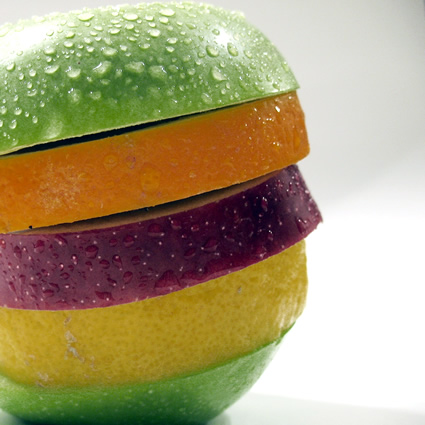
Image by Flicrk HiSpAnIcO[reloaded]
- GenitronSviluppo.com: In your view what will be the changes in the next 20-30 years, brought about by GMO’s, considering the research being done in many areas?
GENET: The EU is not very GMO friendly and it offered resistance to the introduction of GMOs since the beginning. On the other hand the EU Commission is very pro-GMO, against the feeling of the largest majority of its citizens and many of its member-states. Several EU member-states have tried to keep their territories GM-free despite the approval of GMOs at the EU level, but have been constantly harassed by the EU Commission to halt those bans. At the moment there are bans in Switzerland, Hungary, Greece, Poland and France and hundreds of regions in Europe have declared themselves GM-free. Scotland, Wales and Northern Ireland have declared their intentions to be GM-free and they are pressuring the UK government to adopt a similar policy for the nation as a whole.
As mentioned before, after 10 years of commercial planting of GM crops and almost three decades since the first developments on genetic engineering, we are still discussing potentialities of GMOs. It seems a second generation of GMOs is on its way and we might soon see a whole bunch of “functional” GM-foods on the line for approval, like potatoes with low glycemic index and tearless onions that might appeal to some consumers and relaunch the market for GM-food, but in general people who reject GMOs will keep on doing it, because their motivation is the same. They wish to support a kind of agriculture that produces healthy and environmentally-friend food for us and the future generations and GM crops do not fulfill these requirements.
In fact, the latest news suggests that the interest in genetic engineering is decreasing. Less investors are putting their money into biotech companies, as they have not succeeded in providing most of the technological breakthroughs they promised. In Australia scientists are calling to the farmers to switch to an Integrated Weeding Management farming after the appearance of a third weed species resistant to glyphosate (the herbicide used on “round-up ready” type GM crops). From the USA comes the news that many farmers, disappointed with GM soy they planted for years are now returning to planting conventional soy that yields more and whose seed is less expensive.
It is a waste of time to continue making futuristic scenarios about how GMOs will change our lives. Let’s hope that they don’t change our lives for the worst by disrupting irreversibly our ecosystems and causing new and unsuspected diseases in our organisms only revealed 20-30 years from now. Instead of considering a future scenario like the one dreamed by the biotechnology industry, we should look instead to the scientific research that is pointing out to a shift in scientific paradigm that will radically change the way we deal with living organisms and genetics.
In the field of crop science, we are starting to see a shift in the interest of the scientific community from genetic engineering to other uses of genetic and molecular tools – like the use of genetic markers as a help to conventional breeding of plants – that are producing new and interesting varieties of crops with more success than genetic engineering. Many researchers are realizing that genetic engineering is not really the best technology available for crop improvement and that other less flawed technologies are extremely efficient in achieving results without the associated risks of genetic engineering.
Hopefully in 20-30 years we will have developed a more holistic approach to the challenges of life and will have applied all the solutions so long known in all sectors of society to ensure that everybody has access to the basic needs of life. It is of public knowledge that we have the means for providing food, shelter and healthcare to every human being on this planet, even with the projected population growth for the next decades. It doesn’t take a lot of technology only political will and a lot of mentality shifting.
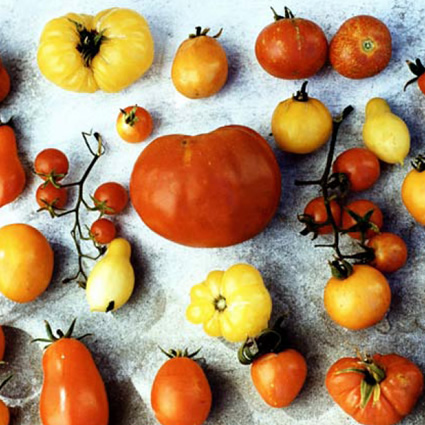
- GenitronSviluppo.com: Credete che I brevetti nel settore della genetica siano veramente legittimi?
GENET: Fino al 1980 i brevetti sugli OGM si concedevano soltanto alle creazioni umane che coinvolgevano un’inventiva non ovvia per uno scopo utile e specifico. Questo escludeva la possibilità di brevettare organismi viventi, ma nel 1980 la corte suprema degli Stati Uniti decretò che i batteri geneticamente modificati potevano essere brevettati. Questa pietra miliare originò negli Stati Uniti una gara per la certificazione degli organismi viventi e i suoi componenti come se fossero invenzioni umane. Non solo i geni e gli OGM sono brevettati ma anche piante e animali cosi come esistono in natura. In tanti altri paesi oltre agli Stati Uniti i brevetti non si concedono su piante o animali convenzionali, ma gli uffici brevetti degli Stati Uniti hanno una grossa influenza sui regolamenti internazionali come il TRIPS (l’accordo del WTO sugli aspetti dei diritti di proprietà intellettuale per il commercio) e WIPO (World Intellectual Property Organisation) che a sua volta ha molta influenza su molti uffici di brevetti nel mondo, che stanno spingendo per adattare i loro regolamenti per accogliere questi decreti.
In Europa l’accordo TRIPS è stato implementato attraverso la direttiva Biopatent. La lotta contro questa direttiva UE è stata il motivo proprio per la fondazione di GENET nel 1995. Oltre alla crescente accettazione dei brevetti che si estende non solo agli OGM ma anche a varietà convenzionali di piante e razze animali ma anche metodi di allevamento, aziende di sementi anche questi organi sovranazionali e quindi le multinazionali stanno cercando di assicurarsi un monopolio sulle sementi e le risorse genetiche tramite altri metodi oltre ai brevetti, promuovendo l’utilizzo di varietà ibride o altri mezzi legali per impedire che gli agricoltori si scambino e riutilizzino le loro sementi, come ad esempio il “Plant variety rights” (PVP). Questo tipo di diritto a differenza dei brevetti tradizionali, concedono alle aziende di sementi di utilizzare a loro volta altre aziende (come un enorme rete di scambio) per produrre le loro varietà di sementi ma impedendo agli agricoltori (al più basso livello della catena) di fare i loro incroci. Nel frattempo i diritti collettivi degli agricoltori sulle varietà delle sementi che è stato curato per anni e in corso di approvazione non è stato ancora riconosciuto.
Questa è una grossa minaccia per i diritti degli agricoltori e allevatori di poter accedere alle varieta di piante e razze animali e quindi per la nostra sovranità (anche nazionale) e la preservazione della biodiversità nell’agricoltura. Nel caso degli OGM, ad esempio, gli agricoltori devono pagare una parcella per la licenza e un cannone di concessione per l’utilizzo delle sementi OGM e tutte le sementi prodotte dalle piante per l’intero periodo del brevetto. E’ vietato anche raccogliere sementi per l’anno successivo, che fa quindi diventare gli agricoltori completamente dipendenti delle corporazioni multinazionali che controllano sempre di più il mercato delle sementi e la catena alimentare.
Infine i brevetti sulla vita, che sono ritenuti dalla società civile come uno strumento per aumentare il controllo dell’industria agricola, cosi questi organi possono controllare ogni attività agraria e agricola, partendo dall’acquisito delle sementi, la loro crescita e finalmente la vendita dei raccolti. Fino ad oggi la posizione “Niente brevetti sulla vita” è condivisa fra la maggior parte delle organizzazioni delle società civili Europee lavorando nei settori ambiente, sviluppo, consumo e agraria. I brevetti non devono essere concessi sui geni e organismi né naturali ne modificati.
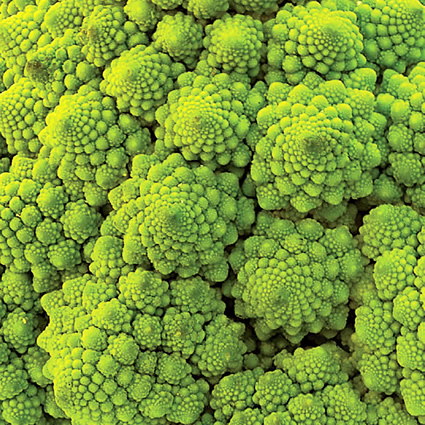
- GenitronSviluppo.com: What do you think of the legitimacy of patents in the genetic field?
GENET: Until 1980, patents could only be attributed to human creations involving a non-obvious inventive step with a clear useful purpose. This excluded living organisms from the possibility of being patented. But in 1980, the US Supreme Court ruled that a genetically modified bacterium could be patented. This landmark originated in the USA a race for the patenting of living organisms and their components as if they were human inventions. Not only genes and genetically engineered organisms are being patented but also plants and animals as they exist in Nature and which are utilized by indigenous people for thousands of years.
In many other countries besides the US, patents are not yet granted on conventional plants or animals, but US patent offices have a great influence over international regulations like TRIPS (the WTO agreement on trade related aspects of intellectual property rights) and WIPO (the World Intellectual Property Organisation) which on its turn have a huge influence over patent offices all over the world, which are being pressured to adapt their regulations to conform to these international regulations.
In Europe the TRIPS agreement was implemented through the Biopatent Directive. The fight against this EU directive was actually the trigger for the foundation of GENET in 1995. Besides the growing acceptance of patenting to be extended not only to GMOs but also to conventional plant varieties, animal races and even breeding methods, seed companies are also trying to secure a monopoly on seeds and genetic resources through other means than patents. They are promoting the use of hybrid varieties or of other legal means to prevent farmers to exchange and re-use their seeds, like the so-called “plant variety rights” (PVP). PVRs, unlike patents, allow seed companies to use other companies’ varieties to produce their own varieties, but still prevent farmers from doing their own breeding. Meanwhile, the collective rights of farmers over seed varieties they have nurtured for years are still not recognized. This is a major threat to the remaining farmers rights and breeders’ access to plant varieties and animal breeds and therefore to our food sovereignty and the preservation of biodiversity in agriculture.
In the case of genetically engineered crops, for example, farmers have to pay a license fee and royalties for the use of GM seed and all seed produced from the plants for the entire duration of the patent. They also are forbidden of saving seed to sow on the next year, which makes farmers totally dependent on large multinational corporations which increasingly control the seeds market and the food chain.
Patents on life are regarded by civil society groups as instruments to increase industrial control over farming, as they can cover any of the farming activities, starting from the act of buying the seeds, to growing them and finally selling the harvest. Until now, the position of “No patents on life” is shared by a large majority of European civil society organizations working in the fields of environment, development, consumers and farmers issues. Patents must not be granted for genes and organisms, be they natural or modified.

- GenitronSviluppo.com: Che ruolo credete abbia il consumatore in tutto questo?
GENET: Il consumatore da questo lato rappresenta una delle forze più potenti del mondo. La maggior parte dei successi riguardo la legislazione su importazione, coltivazione e segnalazione degli OGM e gli ostacoli per l’introduzione di altri OGM sul mercato europeo e mondiale sono conseguenze del rifiuto da parte dei consumatori su questi cibi e la loro richiesta di alternative senza OGM. Nel richiedere questi cibi privi da OGM i consumatori imprimono molta pressione sul mercato e siccome i costi di segregazione fra OGM e non-OGM sono cosi alti, esiste un grosso interesse nell’evitare la coltivazione di colture OGM in paesi dove gli agricoltori, i distributori e i supermercati stanno cercando di coprire le richieste dei consumatori di cibo senza OGM.
Esistono alcune varietà di mais e soia OGM accette per il consumo umano nella UE ma i consumatori non vogliono mangiarle e quindi i rivenditori, produttori e agricoltori organizzano delle catene di produzione per soddisfare questa richiesta dei consumatori per cibo senza OGM ed è per questo che anche se è legale la produzione, non è facile trovare cibo OGM su uno scaffale di un supermercato nell’Unione Europea (ad eccezione di prodotti derivati dagli animali).
Per quanto riguarda I prodotti derivati dagli animali, la Commissione Europea ha ignorato 1 milione di firme dai cittadini Europei richiedendo l’etichetta su carne e prodotti derivati da animali ma non dobbiamo arrenderci e dobbiamo continuare a spingere i supermercati e i marchi per restare liberi da OGM. Eventualmente questa lotta sarà vinta dai consumatori, se non tramite il cambio di legislazione ma spingendo il mercato a garantire ai consumatori la scelta su prodotti animali liberi da OGM.
Nelle Filippine, Greenpeace aveva organizzato una campagna per ristoranti con riso libero da OGM, e l’iniziativa aveva avuto un supporto notevole dal pubblico ed ora sta portando il riso OGM fuori dalle più grosse catene di ristoranti del paese. Il Brasile ha appena lanciato un’associazione di produttori di grano che forniranno all’Europa soia garantita priva da OGM. In Germania grazie ad una campagna ben organizzata con il supporto dei consumatori il parlamento accettò una nuova etichetta “liberi da OGM” per cibi che non contengono organismi geneticamente modificati. Questi eventi stanno accadendo in ogni angolo del mondo e hanno molto impatto. Noi crediamo che una volta che un etichetta “liberi da OGM” sia diffusa in tutta Europa questi prodotti faranno molta fatica a sopravvivere sul mercato.

- GenitronSviluppo.com: What role do you think the power of the consumer plays in all this?
GENET: Consumers are one of the most powerful forces in the world. Most of the achievements regarding legislation on import, cultivation and labeling of GMOs and the obstacles to the introduction of more GMOs in the EU market and worldwide are consequences of consumer rejection of these foods and their demands for GM-free alternatives. By demanding GM-free food, consumers put a huge pressure on the market to provide these foods and because the costs of segregating GM food from non-GM are so high, there is a big interest in avoiding the growth of GM crop plantations in countries where farmers, retailers and supermarket chains are trying to meet consumers demand for GM-free food.
There are several varieties of GM maize and soy approved for human consumption in the EU, but because consumers send out a strong message that they don’t want to eat it, the retailers, processors and farmers organized the production chains in order to meet the consumers demand for GM-free food and that’s why, although legal, it is not easy to find GM-food on a supermarket shelf in the EU (with the exception for animal derived products). Concerning the animal derived products, the EU Commission ignored 1-million signatures from EU citizens demanding the labeling of meat and animal derived products, but we must not give up and we must keep pressuring the supermarket chains and brands to stay GM-free. Eventually this battle will also be won by consumers. If not through a change in the legislation, then by pushing the market to guarantee the consumers a range of GM-free animal products.
In the Philippines, Greenpeace organized a GM-free rice restaurant campaign, which gained a lot of public support and is driving GM-rice out of the major chains of restaurants in that country. Brazil just launched an association of grain producers and processors that will provide the whole Europe with a guaranteed GM-free soy supply. In Germany, due to a well organized campaign with the support of the consumers, the parliament approved a new “GM-free” label for foods that contain no genetically modified organisms. These kinds of events are taking place in every place of the world and are having a lot of impact. We believe that once a GM-free label is spread throughout Europe, GMOs will have a hard time surviving in the market.
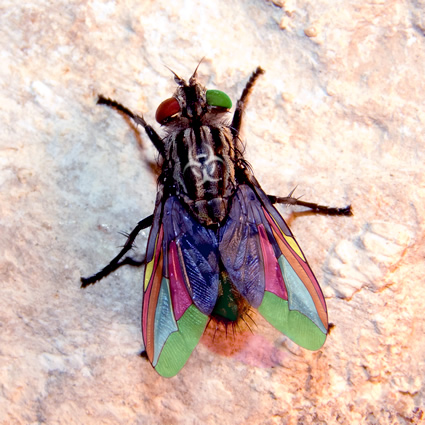
Image by Flicrk Minouto
- GenitronSviluppo.com: In vista di tutto quello che abbiamo discusso finora, qual è il piano d’azione di GENET? Quali sono le iniziative che state promuovendo e quale ruolo ha l’individuo in esse?
GENET: GENET è un network di diverse ONG da tutta Europa e il ruolo principale di GENET è quello di facilitare la comunicazione e il flusso d’informazione fra le organizzazioni che lavorano in questo settore per aiutare a coordinare le loro azioni e campagne. GENET continuerà a seguire gli sviluppi riguardo all’ingegneria genetica e continuerà a fornire un’informazione dettagliata ai suoi membri e individui interessati su questo argomento. Inoltre GENET continuerà ad aiutare nella coordinazione delle ONG che lavorano in questo settore in Europa e nel mondo. Come network di ONG, il lavoro e le iniziative di GENET non sono mirate all’individuo, ma l’individuo può aiutare le organizzazioni membri di GENET associandosi e partecipando alle loro attività, contribuendo alla crescita di questo network di persone che lavorano per un futuro migliore per l’agricoltura e per l’ambiente. Per saperne di più, per trovare le organizzazioni membri del network di GENET in Italia e con chi potreste collaborare visitate il nostro web site di GENET: www.genet-info.org
- GenitronSviluppo.com: Volete dire qualcosa o invitare a far qualcosa ai lettori di GenitronSviluppo.com?
GENET: Come consumatori avete molto potere nelle vostre mani, potreste spendere più tempo a pensare al vostro cibo e il tipo di scelte che fatte per avere un impatto sul mondo. Poi considerate di investire un po’ del vostro tempo ed eventualmente anche denaro per comprare cibi sani, locali, biologici e liberi da OGM. Riempite i test che spesso trovate al supermercato, scrivete lettere, lasciate suggerimenti, ai negozianti come ai supermercati, bar e ristoranti richiedendo cibo libero da OGM. Fate tutto ciò che potete per inviare il messaggio dal basso su quale tipo di cibo e agricoltura volete per voi e per i vostri figli. Come cittadino, fai il tuo meglio per supportare quelle organizzazioni che lavorano inesorabilmente per un ambiente, cibo ed agricoltura migliore – firmate le loro petizioni, fate donazioni, diventate membri, imparate da loro e diffondete il messaggio.

- GenitronSviluppo.com: In view of all this, what is GENET’s plan of action? What are the initiatives you are carrying out and what role does the individual play in them?
GENET: GENET is a network of diverse NGOs from all over Europe. GENET’s main role is to facilitate the communications and flow of information between organizations working on this issue and to help coordinate their actions and campaigns. GENET will continue following the developments regarding genetic engineering and will continue providing in-depth information to its members and interested individuals about this issue. GENET will also continue to help in the coordination of the NGOs that work on this topic in Europe and worldwide. As a network of NGOs, GENET’s work and initiatives are not addressed to the individual, but individuals can help GENET member organizations by becoming their associates and engaging in their activities, contributing to the growth of this network of people working for a better future for agriculture and the environment. To know more about GENET and to look for GENET member organizations in Italy with whom you can collaborate, visit GENET’s website: www.genet-info.org
- GenitronSviluppo.com: Do you have something to say or invite to do to readers of GenitronSviluppo.com?
GENET: As consumers you have a lot of power in your hands. You should spend some time thinking about your food and how the choices you make impact the world. Then consider investing a little of your time and eventually some money, to buy some whole foods, local, organic and/or GM-free. Fill in forms at the supermarket, write letters, leave suggestions, at the stores, supermarkets, cafeterias and canteens, demanding GM-free food. Do all you can to send the message bottom-up about what kind of food and agriculture you wish for you and your children. As a citizen, do your best to support the organisations that work relentlessly for a better environment, food and farming – sign their petitions, donate to their efforts, become their members, learn from them and spread the message.
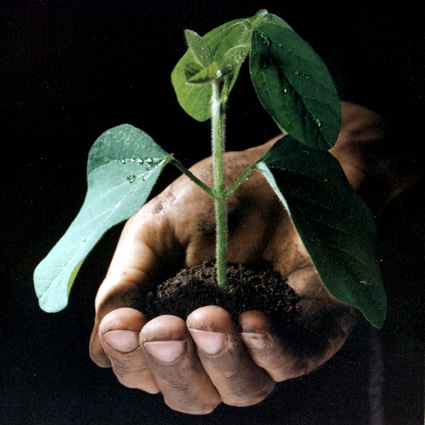
[ Links utili e approfondimenti ]





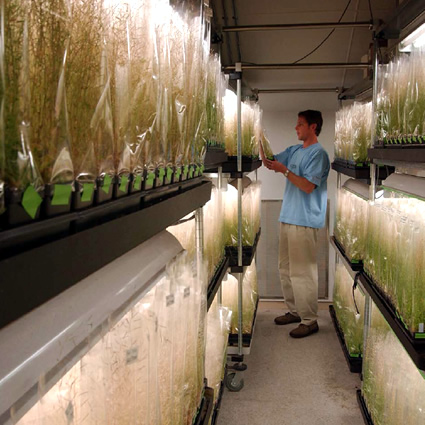





















Nessun commento
Attualmente non ci sono commenti per Contro OGM: La Guida Finale. Intervista con GENET. Maschera e Volto dell’Agricoltura Globalizzata [ PT.2 ]. Perchè non ne aggiungi uno?